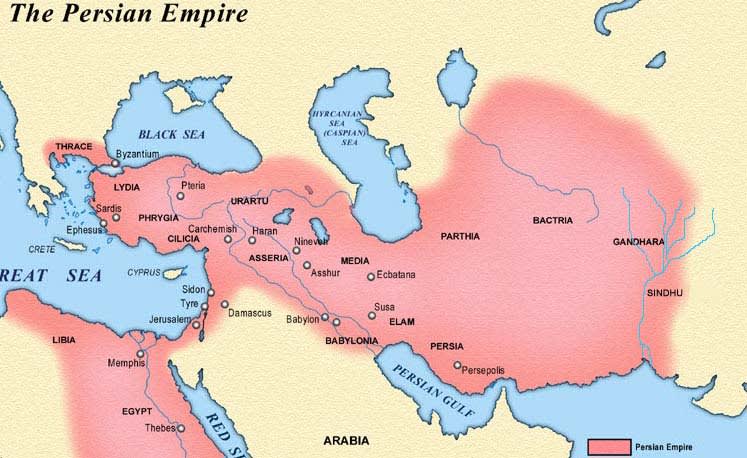The Coming Week’s Daf Yomi by Rabbi Adin Steinsaltz
This essay is based upon the insights and chidushim (original ideas) of Talmudic scholar Rabbi Adin Steinsaltz, as published in the Hebrew version of the Steinsaltz Edition of the Talmud.
Avodah Zarah 76a-b: Eating with the king of Persia
Masechet Avodah Zarah closes with a story about an interaction between Jews and non-Jews.
The closing Mishnah (75b) taught that eating utensils purchased from non-Jews must be made kosher by cleaning them in a similar manner to the way that they were used. If they were used in boiling water, they must be boiled; if they were used directly with fire, they must be placed in fire. A knife that is used for cutting should be cleaned well and it is sufficient. According to the opinions in our Gemara, the knife should be plunged into the ground ten times, i.e. cleaned with some abrasive material. The rishonim explain that since a knife is normally used by applying pressure, we are more concerned lest non-kosher remnants have been left on it.
The Gemara relates:
Mar Yehuda and Bati bar Tobi were sitting with Shevor Malka and a citron was set before them. The king cut a slice and ate it, and then cut a slice and handed it to Bati bar Tobi. After that he stuck the knife ten times in the ground, cut a slice of the citron and handed it to Mar Yehuda. Bati bar Tobi said to the king, ‘Am I not an Israelite?!’ He replied, ‘I am certain that he is observant of Jewish law but I am not certain about you.’ According to another version he said to him, ‘Remember what you did last night!’
According to Persian custom, guests were entertained at night by servant girls who were sent to their rooms. While Mar Yehuda declined the entertainment, Bati bar Tobi welcomed it.
Shevor Malka — Shahpuhr — was the name of a number of Persian kings. Our Gemara appears to be referring to the first king Shahpuhr, who continued his father’s success in wars against the Roman Empire, capturing the city of Netzivim and arriving at the border of Syria. In the course of a number of attacks, he not only defeated the Roman emperor Velrinus, but he captured him and held him until his death. With regard to internal matters, he was an open-minded leader, and allowed a good deal of freedom of religion. As is apparent from our Gemara, he was knowledgeable regarding Jewish customs.
In addition to his monumental translation and commentary on the Talmud, Rabbi Steinsaltz has authored dozens of books and hundreds of articles on a variety of topics, both Jewish and secular. For more information about Rabbi Steinsaltz’s groundbreaking work in Jewish education, visit www.steinsaltz.org or contact the Aleph Society at 212-840-1166.
The words of this author reflect his/her own opinions and do not necessarily represent the official position of the Orthodox Union.

